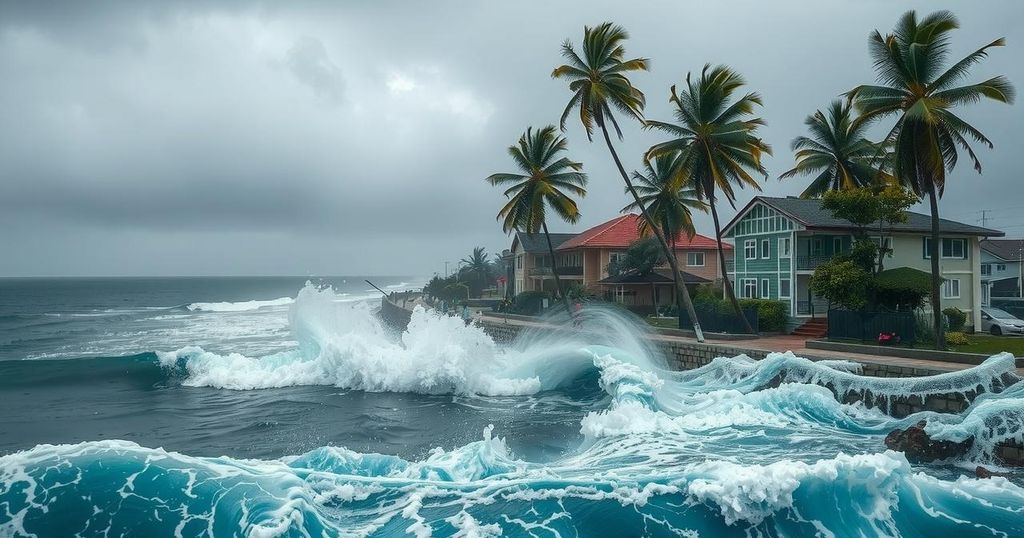World news
AFRICA, BRUNO RETAILLEAU, CAPE TOWN, CHAD YOUYOU, EMERGENCY RESPONSE, EUROPE, EUROPEAN UNION, FRANCE, FRANCOIS BAYROU, FRANÇOIS BAYROU, FRENCH INTERIOR MINISTRY, FRENCH WEATHER SERVICE, INTERIOR MINISTRY, MAYOTTE, NATURAL DISASTER, NATURAL DISASTERS, RESCUE OPERATIONS, SOUTH AFRICA
Michael Grant
0 Comments
Cyclone Chido Causes Catastrophic Damage in Mayotte, Claims Lives and Threatens Mozambique
Cyclone Chido has devastated Mayotte, claiming at least 11 lives and causing extensive damage as it moves towards Mozambique, affecting millions. The storm’s destructive winds and rainfall underscore the increased vulnerability of poorer nations to climate change, warranting urgent international assistance for disaster relief and infrastructure resilience.
Cyclone Chido has resulted in at least 11 fatalities and caused significant destruction in the French territory of Mayotte, located in the Indian Ocean. The cyclone made landfall on Sunday in Mozambique, amidst concerns that up to 2.5 million people in northern Mozambique may be adversely affected. Reports from the French Interior Ministry noted that the aftermath in Mayotte is grim, with numerous injuries and critical conditions reported in hospitals. With winds exceeding 220 kph (136 mph), Chido is classified as a category 4 cyclone, marking it as one of the most powerful storms to impact the region in recent history. Initial assessments suggest that the damage may be unprecedented, prompting efforts for immediate assistance from authorities in France and the nearby territory of Reunion. Rescuers and supplies are being dispatched, and there is a collective effort to reestablish essential services including electricity and water access. Given the cyclical nature of such disasters, experts underscore the exacerbating role of climate change on cyclone intensity, underlining the urgent need for richer nations to assist those most impacted.
Cyclone Chido’s impact highlights the vulnerabilities faced by impoverished regions in the wake of climate-related disasters. With the current cyclone season stretching from December to March, and previous storms like Cyclone Idai and Cyclone Freddy leading to substantial loss of life in Mozambique, Malawi, and Zimbabwe, the pattern of severe weather events in this region has become a concerning trend. The potent winds and associated rainfall not only lead to immediate danger from high winds but also pose long-term risks such as flooding, landslides, and outbreaks of diseases such as cholera and malaria. The situation in Mayotte, characterized by its significant poverty levels, illustrates the urgent need for international support and sustainable infrastructure development to better withstand such natural calamities.
In conclusion, Cyclone Chido has inflicted devastating consequences on Mayotte, with at least 11 confirming fatalities and significant infrastructure damage. As the storm progresses into Mozambique, the potential for widespread humanitarian crises looms large, particularly in impoverished regions which are least equipped to respond. The event underscores the pressing challenges posed by climate change, revealing a critical need for global cooperation to address the humanitarian impacts of natural disasters. Government officials have launched relief efforts, but the community’s recovery will require ongoing support and resources.
Original Source: time.com




Post Comment